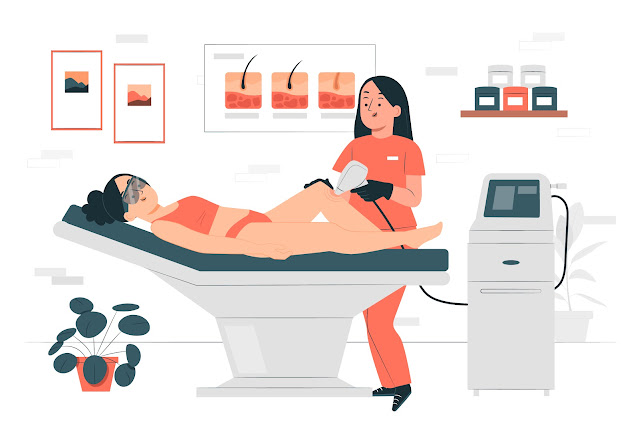Understanding Sex Drive - Everything You Need To Know
Sex drive, also referred to as libido, is a fundamental aspect of human life that varies significantly among individuals. It is shaped by a complex interplay of biological, psychological, and social factors. To fully understand sex drive, it is crucial to examine these diverse influences, how they interact, and the strategies that can be employed to maintain or enhance libido.
Biological Factors Influencing Sex Drive
Sex drive, or libido, is influenced by a complex interplay of biological factors. Hormones play a pivotal role in regulating libido. Testosterone is a primary hormone influencing libido in both men and women, though men typically have higher levels.
Estrogen and progesterone also affect sex drive, particularly in women, as they fluctuate during menstrual cycles, pregnancy, and menopause. Neurotransmitters such as dopamine and serotonin, which regulate mood and arousal, also significantly impact libido.
These biological components are essential in maintaining a healthy sex drive and can be affected by various health conditions and lifestyle choices.
Psychological Factors Influencing Sex Drive
Psychological factors are equally significant in influencing sex drive. Mental health conditions such as depression, anxiety, and stress can lower libido. Conversely, a positive mental state can enhance sexual desire.
Relationship dynamics, including emotional intimacy, trust, and communication, play a crucial role in influencing sexual desire. Additionally, psychological conditions, including past trauma or negative sexual experiences, can profoundly impact an individual's libido.
Addressing these psychological factors through therapy, counseling, and healthy relationship practices can improve overall sexual health and drive.
Common Issues Affecting Sex Drive
Several common issues can negatively affect sex drive. Stress is one of the most significant, as it can lead to the release of cortisol, a hormone that can suppress sexual desire. Fatigue and lack of sleep also play a crucial role, as they can reduce energy levels and overall interest in sexual activity.
Medical conditions such as diabetes, heart disease, and obesity can impair blood flow and nerve function, reducing libido. Medications, including antidepressants and blood pressure drugs, are known to have side effects that impact sex drive. Additionally, lifestyle factors such as excessive alcohol consumption, smoking, and drug use can adversely affect sexual health. Recognizing and addressing these issues is essential for maintaining a healthy sex drive.
Hormonal Impact on Libido
Hormones are integral to regulating sex drive. In men, testosterone levels typically peak during adolescence and early adulthood, gradually declining with age. Low testosterone levels can lead to decreased libido, fatigue, and even depression. In women, hormonal fluctuations during the menstrual cycle, pregnancy, and menopause can significantly impact sex drive. Estrogen levels, which rise and fall throughout the menstrual cycle, influence sexual desire.
Hormonal imbalances, such as those caused by polycystic ovary syndrome (PCOS) or thyroid disorders, can also affect libido. Hormone replacement therapy (HRT) may be an option for some individuals experiencing low sex drive due to hormonal changes, but it should be pursued under medical supervision.
Lifestyle Choices and Their Effects on Sex Drive
Lifestyle choices play a crucial role in increasing sexual sensitivity.
Regular physical activity enhances overall health and well-being, improving circulation, stamina, and mood, all of which can boost libido. A balanced diet rich in vitamins, minerals, and antioxidants supports hormonal balance and energy levels.
Adequate sleep is essential for maintaining a healthy sex drive, as it impacts hormone production and overall energy. Managing stress through mindfulness, meditation, or yoga can help mitigate its negative effects on libido. Conversely, negative lifestyle choices such as smoking, excessive alcohol consumption, and drug use can impair sexual function and reduce desire.
Professional Treatments to Enhance Sex Drive
For those experiencing persistent issues with low sex drive, professional treatments can be effective.
Hormone therapy is one option to increase sex drive, particularly for individuals with clinically low levels of testosterone or estrogen. Testosterone replacement therapy (TRT) can be administered through injections, patches, or gels, while estrogen therapy is often used for women experiencing menopause.
Psychotherapy or counseling can address underlying psychological factors such as stress, anxiety, or past trauma. Cognitive-behavioral therapy (CBT) is particularly effective in treating sexual dysfunction by changing negative thought patterns. Relationship counseling can improve communication and intimacy between partners, enhancing sexual desire. In some cases, medications such as sildenafil (Viagra) or flibanserin (Addyi) may be prescribed to improve sexual function.
When to Seek Professional Help?
It's important to seek professional help if low sex drive is causing distress or affecting relationships. Persistent issues with libido may indicate underlying health problems that require medical attention. Consulting a healthcare provider can help identify the root causes of low sex drive and determine the most appropriate treatment options.
Sex therapists, endocrinologists, and gynecologists are specialists who can offer targeted treatments and support. Open communication with a partner and healthcare provider is crucial for effectively addressing and managing issues related to sex drive. Seeking professional help early can prevent further complications and improve overall quality of life.




Comments
Post a Comment